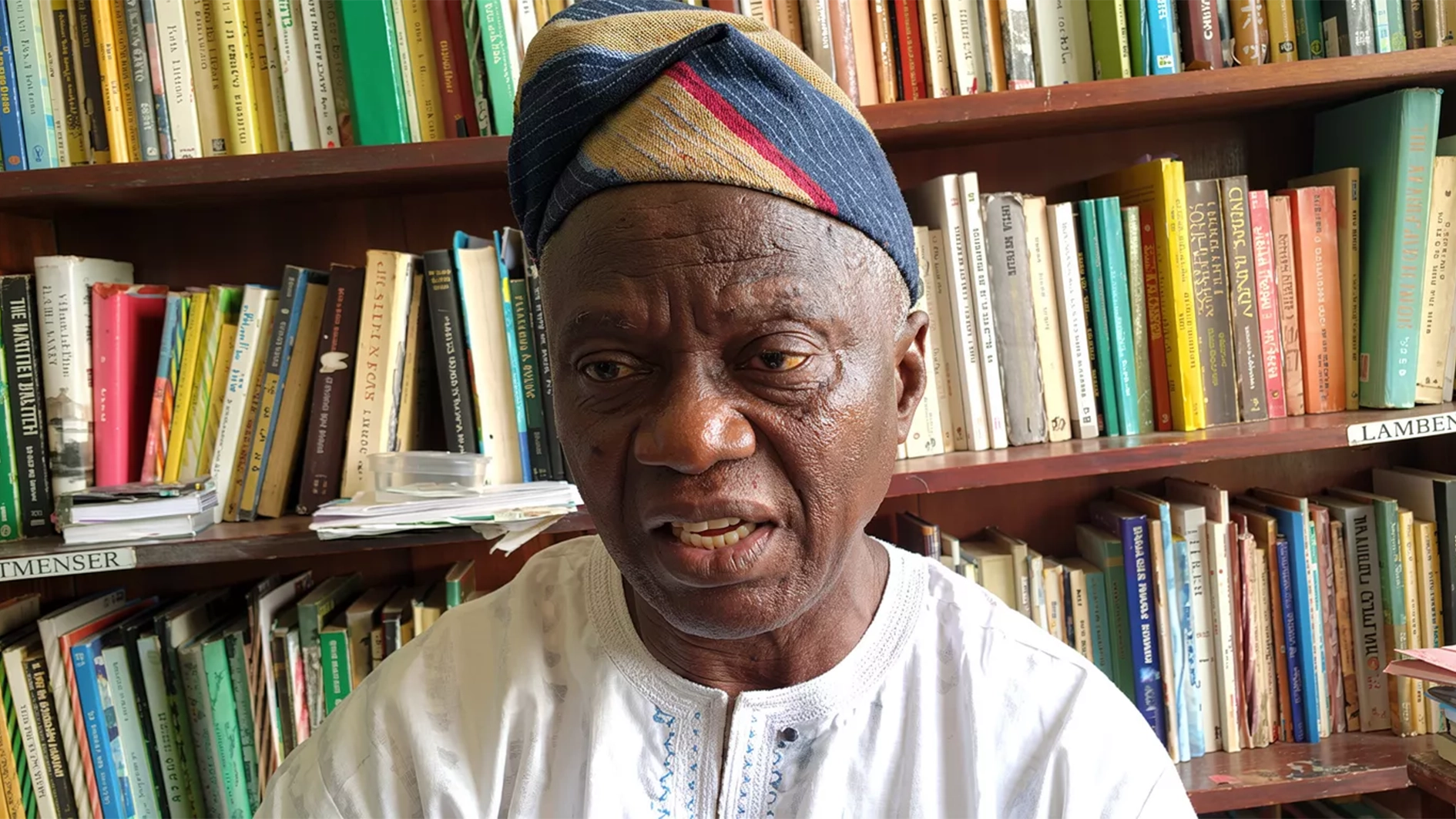
Among the new things that the coronavirus pandemic has made to happen in Nigeria, stay-at-home learning is one of the most difficult to cope with. Many initiatives, including scheduled educational radio broadcasts, were introduced to make the special learning strategy work. Despite all these efforts, not much success has been achieved. Some online learning platforms which Nigerian educators relied on to facilitate the sit-at-home learning, including Zoom and Google Meet, have not actually been helpful in achieving the target because of some inadequacies in the Nigerian environment. Many Nigerians are either not buoyant to create platforms for the sit-at-home learning or they are simply not interested in the initiative. Filling this gap, with a unique e-learning audio platform dubbed Learn-at -Home Radio, is Dr. Olubayo Adekanmbi, who has continued to seek solutions to the nation’s educational deficits. In this interview with CHINONSO IHEKIRE, he talks about the inspiration behind the project, the challenges of virtual learning in Nigeria, and possible solutions.
The Learn-at-Home Radio is a novel idea. What inspired the project?
I was inspired to come up with the e-learning audio platform by the learning gaps that we witnessed during the six months that the coronavirus-induced schools closure lasted. There was the need to migrate academic activities online and remotely teach pupils. Learn-at-Home was created by my firm, DSN (Data Science Nigeria) Nigeria and Malezi, in partnership with the Mastercard Foundation. At the time, some schools adopted remote teaching, leveraging on social platforms such as WhatsApp, YouTube, voice notes and other simple applications, to achieve continuous learning. Public schools’ students in far-flung hamlets and settlements across the country suffered the same fate as some of their counterparts in metropolitan centres because of the poor facilities and resources at their disposal.
On their parts, most households do not have the amenities to engage their children/wards in remote/e-learning. Where the average family is not pressed financially, it is battling with Internet network fluctuations, insanely high data consumption as well as fluctuating electricity supply all of which constitute a disincentive to e-learning. We also developed the platform as an inclusive solution to address the challenges of learners in rural and sub-urban areas and those who do not own smartphones or laptops.
Do you think that virtual learning can thrive in Nigeria, despite our peculiarities?
Virtual learning can thrive in Nigeria despite peculiarities, as long as it is built for inclusion in mind. The platform should be built to take into cognisance the population and target audience, with a deep understanding of how these segments use virtual learning. Our virtual solutions need to understand and cater, especially for the overlooked segments like users in the rural areas. As long as the solution is built for such segment, it will thrive as it has addressed the most fundamental requirement, which is identifying the user’s pain point and building a solution that solves the problem. For instance, my platform is a creative and innovative approach to democratising learning and offering an effective solution to the challenge of unequal distribution of learning and education opportunities across rural and urban communities.
Your platform is already swelling with over four million users in Nigeria alone. How were you able to achieve these number in a short time?
We were able to achieve our 4 million users through several initiatives to reach our target audience. We were able to leverage on a large network of agents across the 36 states of Nigeria, who worked with us in reaching kids in remote and closed-out communities. These agents were mostly young people, who understand the local terrain, and were amazingly committed to bringing the Learn-at-Home channels to their communities.
What prospects do you envisioned for the platform within the Nigerian educational sector?
The drive to keep millions of learners engaged during the lockdown will also address the issues of out-of-school ratio, because students who had no form of learning engagement during the pandemic would find it exceedingly difficult to switch back to the school learning mode. Our platform perfectly addressses this gap at scale. We strongly believe that this timely intervention will have a direct impact by removing the existing barriers to quality education.
There is a growing lack of Edu-tech innovations in Nigeria. What do you think is responsible?
I think inadequate digital literacy efforts. This is because more organisations need to get on board with digital literacy skills and training. Then, obsolete teaching curriculum. Our teaching curriculum lacks the adequate attention for digital and technology innovation
How do you think we can overcome this?
Through the development of e-learning platforms to increase access to education. We also need to collectively create more awareness for the need to acquire digital skills and competencies across all ages. We also need to focus on driving the inclusion of digital education in the curriculum. We need to intensify efforts towards training of educators. Lastly, there is need to improve education standard and create more opportunities in the digital space
What role do you believe the government has to play to drive e-learning, especially with the COVID-19 pandemic and other current realities in the country?
The project has enjoyed tremendous support of the government. We have had states that directly promoted it among the learners and even teachers. On the launch date, we had the pleasure of hosting dignitaries such as Governors Aminu Bello Masari (Katsina State) and Aminu Tambuwal (Sokoto) ably represented by the Commissioner for Commerce, Mallam Basiru Gidado. We have had series of engagement and partnership sessions with federal and states ministries of education to embed the benefits of the Learn-at-Home project






